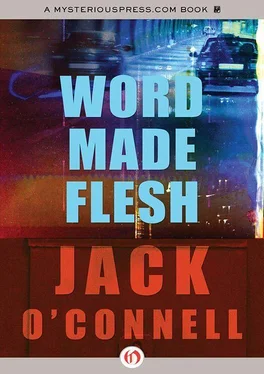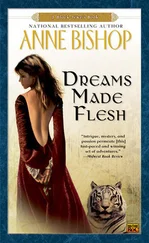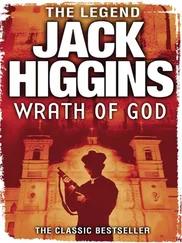But if Kinsky’s people still love him like a flesh-and-blood guardian angel, his status among the rest of the city’s neighborhood mayors is at its lowest ebb since the day he disembarked from the freighter that brought him to this country. Kinsky has had a bad year. His heir apparent has run off to become a filmmaker and the nephew who ran his street muscle met an unfortunate end. Subsequently, the Gray Roaches, who worked all his filthiest departments, the extortion and the pharmaceuticals, and who served as the Wing’s only border patrol, fell into chaos and disbanded. Hermann has been reduced for the past six months to renting the services of a variety of hit-and-run street soldiers from out of town, and it’s more than embarrassing for Kinsky to be leasing non-Maisel muscle. It’s dangerous in a variety of ways. It sends out a message of instability and weakness. If push comes to shove and another tribe makes an expansion move into the Wing, Hermann can’t count on these mercenaries laying down their lives for Bohemian territory. It’s the difference between having family and having a labor force. The difference, as always, between love and money.
Gilrein has eaten at Lustig’s once before. Ceil took a meeting with Kinsky on Lacazze’s behalf and Gilrein tagged along. Kinsky was as polite as his Eastern Euro-peasant ways would allow, as if he needed his pragmatic intelligence to control the reflexive absurdity of discussing business with a woman. And not just a woman but a female policista. How has this country prospered so , Hermann wondered, with such nonsensical ways?
Gilrein no longer remembers the specifics of that dinner’s discussion, as a good deal of it was conducted in a certain pidgin-Slavic ghetto dialect that Ceil had spent weeks practicing. He does recall the amused look on Kinsky’s face each time Ceil spoke on behalf of the department as well as the unmitigated heartburn he suffered for close to a week afterward. “I tried to warn you,” Ceil said later that night, dispensing a pale green antacid into a table-spoon, “never order the guinea fowl goulash unless your stomach was born in Maisel.”
Gilrein enters the cafeteria to the sound of accordion music and the suspicious mass-glance of the diners. He gets in line behind a trio of young men who appear, by their scent and their freshly crimson-stained coveralls, to have just gotten off the night shift at a nearby slaughterhouse. The threesome gesticulate wildly to Boz Lustig, bathed in a perpetual cloud of steam behind the counter, yelling at him, it seems, not to spare the gravy nor shortchange them in the area of internal organs. Gilrein takes deep breaths till it’s his turn, then signals Lustig for a simple cup of coffee, which the owner retrieves with a maximum of unintelligible grumbling.
Gilrein overpays the man, though it fails to cut the complaining, then takes the coffee mug and moves to the rear of the room where, as he hoped, he finds Hermann Kinsky installed in his reception booth, decked out in his trademark red flannel pajama suit beneath a maroon paisley silk robe, one hand shaking the paw of an elderly and toothless woman, the other shoveling the remains of glazed blood sausage into his mouth. His sidekick Weltsch sits on the opposite side of the table, studying bond prices in the Wall Street Journal.
Gilrein approaches and without waiting for an invitation, slides in next to Weltsch, startling the lawyer and spilling just a bit of his cocoa. It’s a rude maneuver and not too smart considering Gilrein’s noncop status. But he knows from Ceil that Kinsky likes to see someone’s stuff up front and he needs to make it clear to Hermann that he’s not cowed by a gangster who currently has to rent his street balls.
“Are you the new busboy?” Kinsky says and takes a sip of some kind of liqueur from a short fat water glass. “Have you come to clear my plate?”
Gilrein gives a small smile and a nod.
“You know who I am, Hermann,” he says.
Kinsky mimes recognition.
“Of course,” he says and licks syrup from all the fingers of his eating hand. “You were the husband of the Inspector’s woman.”
Gilrein thinks about throwing his coffee in Kinsky’s face, but manages to suppress the urge.
“That’s right,” he says instead, “and you’re the little haberdasher who’s about to get his ass permanently kicked by the Iguaran Family.”
Weltsch looks up from the Journal and stares at this intruder, as if trying to determine if the man is clinically insane or just pathetically stupid. Because the fact is that though Kinsky is more than vulnerable to a hit from Latino Town right now, he doesn’t need the Gray Roaches to garrote one insulting ex-cop. He could do it right here on the tabletop with the help of Lustig or the slaughterhouse crew. And everyone in the cafeteria down to a man would scream out their pride in their mayor.
It doesn’t come to that. Hermann Kinsky almost always wants to hear what a man has to say before he judges whether to preserve or cancel a life. He lets a huge smile come over his jowly face, claps his hands into an explosion over his head, and yells, “Lustig, my friend, becherovka for my guest.”
Boz breaks off from the serving line and immediately comes running, plants on the table an unlabeled brown bottle and a mismatched plastic glass that’s sporting some kind of crust around its rim. Lustig waits for Kinsky’s nod, then jogs away. Weltch pours Gilrein a drink. Gilrein accepts it, lifts his glass toward Kinsky and the two toast one another silently and sip a hootch that goes down like kerosene.
Weltsch, seeing that the threat of violence has been contained for the moment, goes back to the trading news, but says quietly, over the edge of the paper, “His name is Gilrein.”
Kinsky absentmindedly stares down at his tray, looking disappointed, and says, “We dined together once,” nodding as he remembers the night. “I was very sorry to hear of your wife’s demise.”
Gilrein accepts the condolences, however graceless, and says, “Ceil thought you were a comer. Out of all the new arrivals, she said the old boys should keep their eyes on you.”
It’s no secret in Bangkok that, even more than most of the neighborhood mayors, Kinsky is easily flattered. And that flattery can buy you a small piece of his time and maybe even a little advice. But what Gilrein has said is also the truth. Ceil was nothing if not a good judge of the upward mobility of new mobsters in the Park. She saw something in Kinsky that her husband could not. She tried to explain it to him later, after that horrible dinner, back in the darkness of their bedroom, her take on the patterns of Kinsky’s brain, her close reading of the core of this Maisel wise guy: “He may not be as smart as Iguaran or as charismatic as Sylvain or as globally connected as Jimmy Tang, but he’s got that pure gangster’s soul. He’ll end up a real player, like Pecci and Loftus. He’s intuitive about the flow of the street. He can feel the natural course of the market. He’s got that fundamental ruthless ness, that innate understanding of social Darwinism. I’m telling you, he may have been born and raised in Old Bohemia, but he understands the way America works better than a goddamn pilgrim. He’s got the intestines of a down and dirty pomo capitalist. You kill off your enemies and you buy off your friends and when you get your opponent to surrender in the gutter, you kick in his teeth and piss on his head and you take his wallet and his wife. Whatever you can get, whenever you can get it. And the last bastard left standing is king of the hill.”
And Gilrein lay there, spooned behind Ceil’s body, his face against her head, smelling her hair. And it was as if his wife’s voice were coming from someone else, being used by some strange and ambivalent entity, some dark and hidden aspect of God that no one had bothered to explain to him. He tried to hold off a shiver, because it almost sounded like Ceil felt a kind of perverse respect for this monster she was describing, like a confused anthropologist who, miles from home and watching a cannibal feast on his own, couldn’t help but smile at the fact that the savage would go to bed with a full stomach.
Читать дальше












